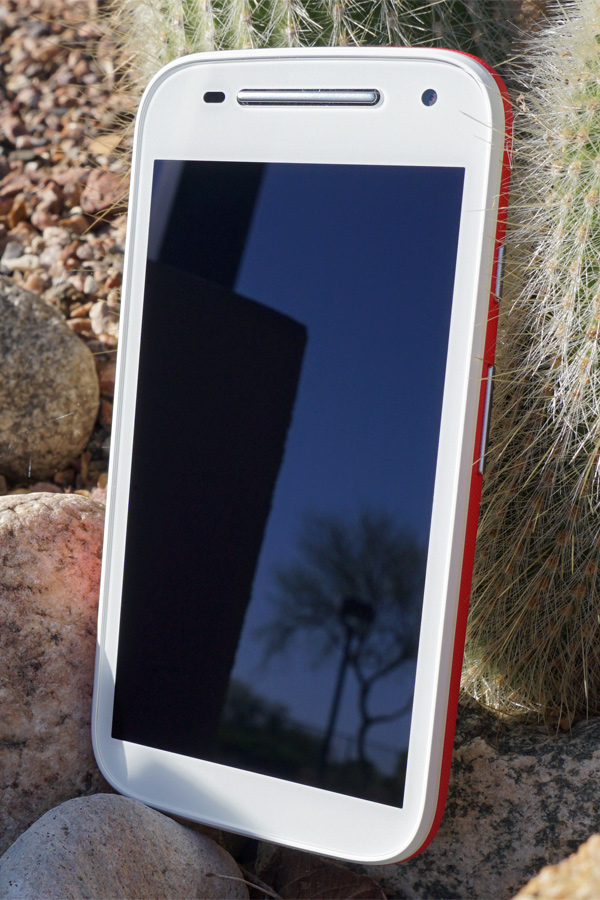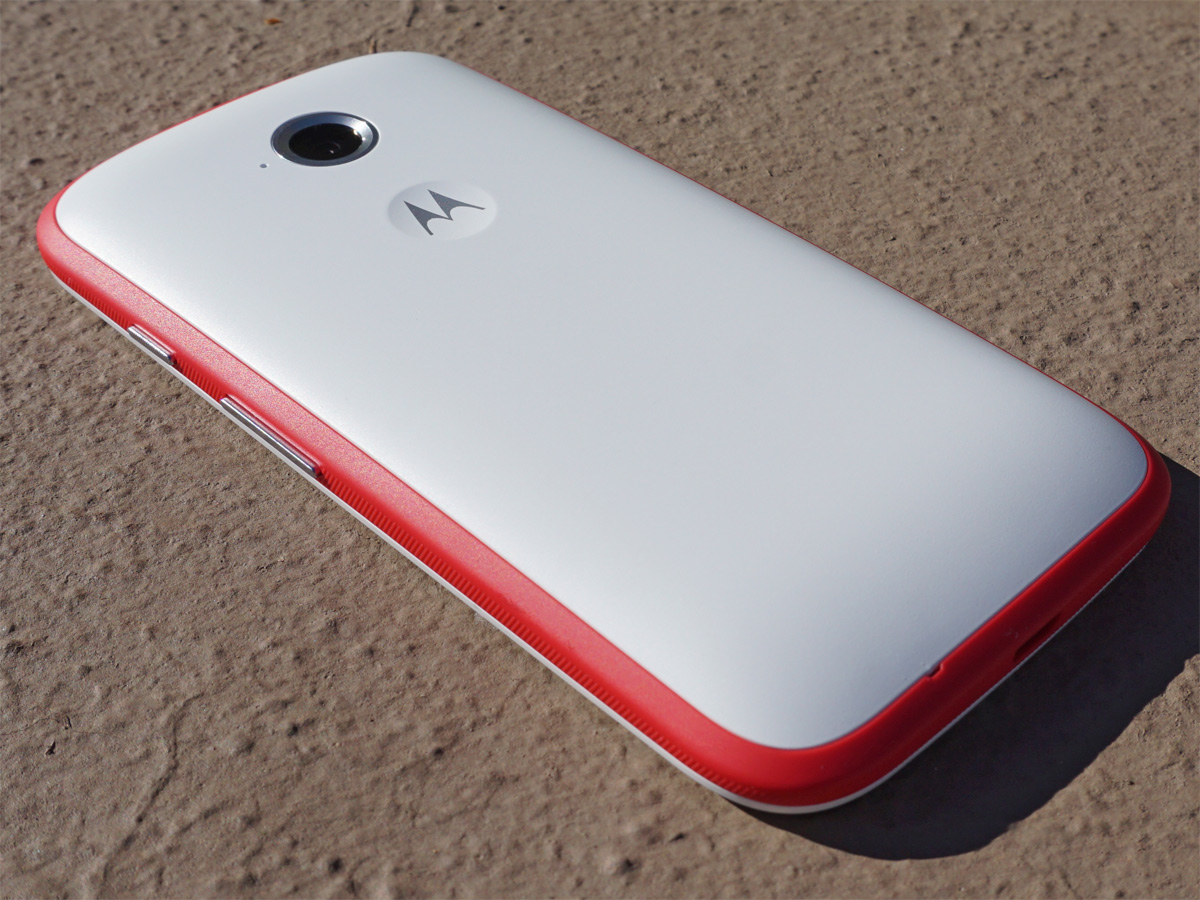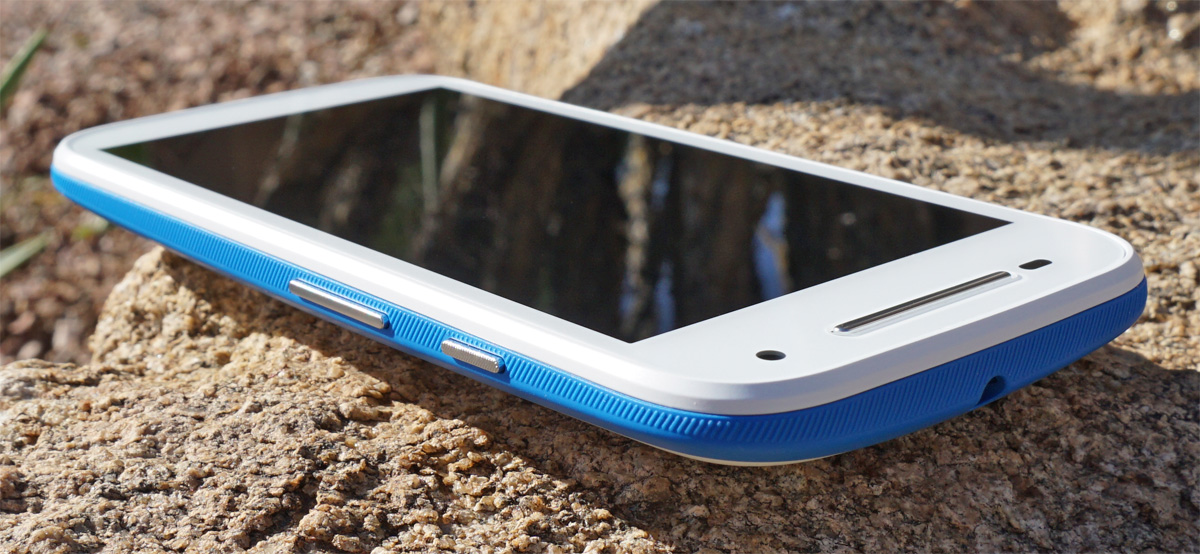Motorola Moto E (2nd Gen) Review
Motorola’s second generation Moto E receives significant enhancements, including a faster 64-bit SoC, front-facing camera, and bigger battery. There’s even an LTE option. Is this budget smartphone worth more than its bargain price?
Why you can trust Tom's Hardware
Conclusion
There’s no shortage of inexpensive Android phones in the market, but most combine subpar hardware with outdated software to create a truly lamentable user experience. Motorola broke the status quo with the first Moto G by combining decent hardware with a current version of Android—along with the promise of regular updates—all for an affordable $180 price. It then created the Moto E, an even more affordable phone targeted at first-time smartphone users.
Motorola made too many compromises with the first Moto E, however. It had a slower processor, less storage, smaller screen, lower resolution, no front-facing camera, and a next to useless rear camera with no autofocus or LED flash. Far too much to sacrifice for a mere $50 savings.
For the second generation, Motorola fixes many of these shortcomings. Performance gets a boost from the new Snapdragon 410 SoC and its improved Cortex-A53 CPU cores. System performance is about 10-20% better than the more expensive Moto G, a difference that is noticeable in real-world use.
The Moto G offers more raw GPU performance, but because of the Moto E’s lower screen resolution, it actually offers better onscreen graphics performance. You might not be able to play the most intense 3D games on the Play store, but the Moto E can handle the more casual 2D games that are prevalent.
The new Moto E also sees its internal storage double to 8GB, the same as in the Moto G. Only 4.58GB are available to the user out of the box, but this can be expanded with a microSD card. We did find the Moto E’s internal storage a bit slow, but it did not appear to affect overall performance substantially.
Motorola’s simple and intuitive camera app powers an upgraded camera experience. There’s now a low-resolution VGA camera on the front, which is better than nothing, and the rear camera gets autofocus. It produces decent images in bright light, but the 5MP rear sensor produces dark and very noisy images in less than perfect lighting. Without an LED flash to brighten up the scene, the Moto E’s camera is essentially unusable in the evening or in romantically lit rooms.
A similar dichotomy exists for the new Moto E’s display. Size increases from 4.3-inches to 4.5-inches, but it retains the same 960x540 resolution as the first generation, reducing pixel density to 245 PPI. This gives the screen a bit of a grainy look, but the color accuracy is quite good. We were surprised to see such a well calibrated screen at this price point, especially considering how poor the screen on Motorola’s flagship Nexus 6 looks.
Get Tom's Hardware's best news and in-depth reviews, straight to your inbox.
We did find it disappointing that the screen bends slightly even under light pressure. The problem with this is that your fingers will slide with greater friction on the screen, just enough to make it a little frustrating to use. The Moto G’s rigid cover glass makes using the touchscreen much more accurate and enjoyable. The potential upside to the Moto E’s semi-flexible screen is that it might be more resistant to cracking if dropped.
Like the screen and internal storage, the Moto E’s battery size has also been increased. The battery held out for more than eight hours of continuous use in the PCMark battery test, and we were able to get two to three days of moderate use on a single charge, significantly more than with the Moto G.
While not perfect, the Moto E 4G LTE is a solid smartphone and a good value. For $30 less than the Moto G (2nd gen), you get better performance and battery life, not to mention the Moto G is 3G-only. Sure, there are similar phones that are even cheaper, but they can’t match the polish of the Moto E 4G LTE and its overall user experience. That is why it comes Editor Recommended.
Lucian Armasu is a Contributing Writer for Tom's Hardware, covering News. Follow him on Twitter, Facebook and Google+.
Matt Humrick is a Staff Editor at Tom's Hardware, covering Smartphones and Tablets. Follow him on Twitter.
Follow Tom's Hardware on Twitter, Facebook and Google+.
Lucian Armasu is a Contributing Writer for Tom's Hardware US. He covers software news and the issues surrounding privacy and security.
-
emad_ramlawi Lenovo k30-W for the winReply
all the above +
HD ready resolution 720p
internal storage 16GB
the only con, is there OS, which is good, but not really vanilla android -
atljsf i bought one and had to return it, it restarts while charging and motorola at this moment hasn't solved the problem, a shame because it is a nice fast phoneReply -
tekelymailcom The only international variant mentioned is the XT1505 but there are more. I found very interesting the XT1523 which has 16GB, dual sim and digital TV reciever.Reply -
HideOut There might be an error in the speaker/sound part above. "Plugging in a set of good headphones provides a similar listening experience. Relative to the iPhone 6, bass has less punch and the Moto E lacks clarity; the signal-to-noise ratio seems higher." The S/N ratio on the Moto E should be LOWER, not higher if it sounds like its lacking clarity.Reply -
HideOut There might be an error in the speaker/sound part above. "Plugging in a set of good headphones provides a similar listening experience. Relative to the iPhone 6, bass has less punch and the Moto E lacks clarity; the signal-to-noise ratio seems higher." The S/N ratio on the Moto E should be LOWER, not higher if it sounds like its lacking clarity.Reply -
MobileEditor ReplyThe S/N ratio on the Moto E should be LOWER, not higher if it sounds like its lacking clarity.
Good point. I must have been thinking of THD, which is expressed as a percent. I've made the necessary correction.
- Matt Humrick, Mobile Editor, Tom's Hardware -
Dr3amCast I also purchased this phone and experience the restart while charging issue. Also, the performance is on par with a very, very basic Lumia 510 I had the misfortunate of having to use for a short time. The phone chugs while multi-tasking. And I mean by just hitting the home screen instead of closing out of apps. And even that takes an inordinate amount of time. I'm talking a noticeable 3-4 seconds after you hit home: your background wallpaper shows up, but no icons or app try icon, then another second or 2 later the icons show up. It's performance is dreadful. As well is its 1GB of memory. If I'm in the car I use bluetooth and Google Play Music / Google Maps. If I begin navigating to a destination and begin playing music Maps will close. I'm assuming due to lack of sufficient RAM. If I'm at a stop light and open snapchat, Google Play Music, Maps or Waze will close if I view a Snap. It's really rather frustrating the more you use the device. And I don't have many apps on here at all. Essentially just FB, Twitter, Snapchat, Waze, WatchESPN, HBOGo. That's all. It's frustrating seeing reviews like these on this phone that don't actually put it through its paces for a decent amount of time.Reply -
MobileEditor ReplyI also purchased this phone and experience the restart while charging issue. Also, the performance is on par with a very, very basic Lumia 510 I had the misfortunate of having to use for a short time. The phone chugs while multi-tasking.
I'm sorry you had a poor experience, but thanks for taking the time to add your story. This is why we included the HTC Desire Eye in our performance evaluation, so our readers could see the performance delta between some lower-cost devices and last year's flagships running Snapdragon 801 SoCs, which are now considered mid-tier.
Our unit did not experience the restart while charging issue, and while this comes as no solace to you, the Moto E handled its 1GB of RAM better than the Lumia 830 did during our testing and evaluation.
- Matt Humrick, Mobile Editor, Tom's Hardware -
quadrider21 I've experianced BT connectivity problems with both the Moto G and this new Moto E when connected to various cars. I'd be wary purchasing these phones if you rely on BT connectivity in your cars.Reply



